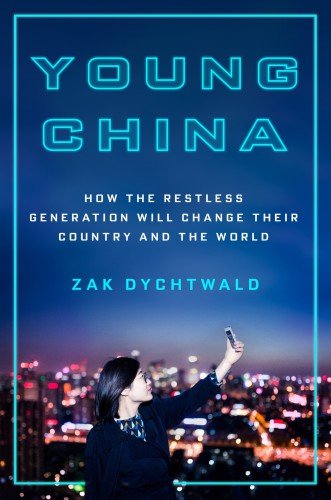
Young China
How the Restless Generation Will Change Their Country and the World
- اطلاعات
- نقد و بررسی
- دیدگاه کاربران
نقد و بررسی

Starred review from October 23, 2017
Debut author Dychtwald, who heads the China office of the Dilenschneider Group consulting firm, delves into the trends and culture of Chinese youths to explore how modern-day China is evolving into a more open and inclusive society. Penetrating the world of Chinese millennials (defined here as those born between 1984 and 2002), Dychtwald touches on their famously demanding study practices through an interview with a graduate-school applicant who spends nearly 90 hours weekly studying for an entrance exam. Dychtwald’s own experience teaching English to kindergarteners brings him into contact with China’s “little emperors”—the young products of the Chinese one-child policy who are simultaneously coddled and pressured to succeed. Other trend-based neologisms reported in the book include the delightfully strange “parent eaters”—those who rely on parental support well into adulthood—and the heartbreaking “leftover woman”—an unmarried woman over 27 years old. A mother overheard admonishing her daughter crystallizes lingering conservative attitudes toward marriage and romance: “Dating not for the sake of marriage is hooliganism!” Dychtwald also examines Chinese youths’ retail habits, growing tolerance toward homosexuality, and views on democracy, censorship, and the Communist Party. It’s a richly informative and surprisingly intimate portrait of a side of China unknown to most Westerners. Agent: Elizabeth Kaplan, Elizabeth Kaplan Literary Agency Inc.

January 1, 2018
There are many books written by foreigners who move to China to learn about the traditions, culture, and headlong rush toward development that are hallmarks of the modern era. Peter Hessler's River Town, Michael Meyer's In Manchuria (both written by former Peace Corps volunteers), and Mark Salzman's Iron and Silk each combine anecdotes about expats struggling with culture, food, and language barriers with explorations of Chinese history and personal stories about the people they meet. With this book, Dychtwald updates these narratives, focusing less on personal revelation and more on character studies that highlight the challenges and opportunities of being a Millennial in China today. Dychtwald emphasizes the way this younger generation is different than their parents: in the brutal financial pressure faced by young men and women who are hoping to attract a spouse and maintain a household; in the changing attitudes toward sex and sexuality; in the opportunities provided by increased education; and in the cultural and economic shifts brought about by widespread access to the Internet. VERDICT This engaging and fast-paced read will appeal to those interested in modern China and the experiences of Millennials.--Rebecca Brody, Westfield State Univ., MA
Copyright 2018 Library Journal, LLC Used with permission.

January 1, 2018
Travels in the China of the aspiring, wanting young.By Mandarin-fluent communications consultant Dychtwald's reckoning, there are about 400 million millennials in China--more, that is, than the entire population of the United States, and though Chinese reckon generations by decades, those born between 1984 and 2002 (the U.S. definition of "millennial") constitute a vast and world-changing cohort, "part of the world's middle class, the first generations less preoccupied with needs and more involved with wants." The author ventures insightful comments about his time in China, likening his explorations to the rock walls of the Grand Canyon, each layer telling its own story, from the differences between Chinese and American cultures to the differences between the idealized Chinese life of Buddhism and Confucianism and the actual Chinese life of consumer capitalism. Dychtwald chronicles the pent-up demand for things that fuels a subeconomy of faked Western brands, and he observes the rise in obesity among young Chinese to levels higher than Japan or South Korea. Much of this he links, in a nice logical exercise, to the consequences of the one-child policy (now abandoned) and the resultant surfeit of grandparents as compared to grandchildren. "A grandparent-led childhood," he writes, "is part of why excess, and greater wealth, is so central to the experience of China's only children." The narrative is full of incomplete stories--incomplete because they're not yet resolved, such as whether gay people will be accepted in the rising China--and unintended consequences: China's anti-corruption campaigns, for example, mean that government work is not financially desirable, driving young people into entrepreneurship. Dychtwald is sometimes gee-whizzy and given to stating the obvious ("because of their remoteness, these places are prettier and more serene than the industrializing areas of China and are relatively untouched"), but his book is readable and engaging all the same.Informative and often entertaining--good reading for anyone looking into the crystal ball for a glimpse of the world a quarter-century from now.
COPYRIGHT(2018) Kirkus Reviews, ALL RIGHTS RESERVED.




دیدگاه کاربران